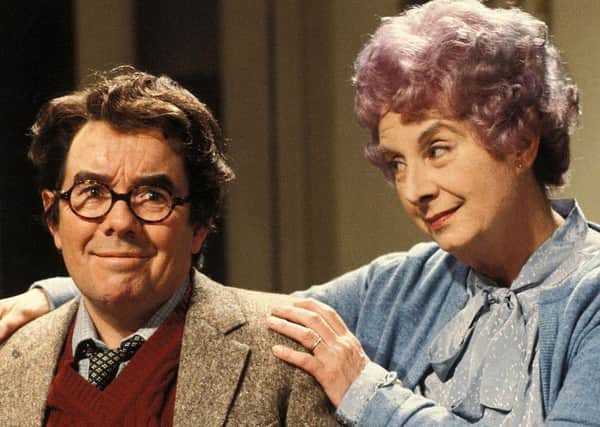Frank Hughes: It can be difficult to swallow our pride


Yet saying “sorry” is one of the most powerful words we can use. By apologising, we can help someone we have hurt to begin the healing process and move on from what may have been a difficult, damaging period in their life. When it comes to the legal implications of saying sorry, making an apology has always carried a lot of baggage. Until now, lawyers in court have often tried to use any mention of the word “sorry” as an admission of fault or liability.
For years, many have avoided uttering the s-word for fear that it may be interpreted as an acknowledgment of wrongdoing. Instead, individuals and organisations have often remained tight-lipped, which may well have added to the pain and suffering of the person who has been hurt, whether emotionally or physically. This culture may change on June 19 when the Apologies (Scotland) Act 2016 is due to come into force. In a nutshell, the Act is designed to allow individuals and organisations to say “sorry” for their actions or inactions without that being seen as an admission of fault or liability. The Act also protects the part of a statement containing an undertaking to look at the circumstances to prevent a recurrence.
Advertisement
Hide AdAdvertisement
Hide AdIndeed, the legislation very clearly spells out that “in any legal proceedings to which this Act applies, an apology made (outside the proceedings) in connection with any matter is not admissible as evidence of anything relevant to the determination of liability in connection with that matter, and cannot be used in any other way to the prejudice of the person by or on behalf of whom the apology was made”.
The Act makes it clear that it only applies to civil proceedings and not to criminal cases. Plus, there are a number of exceptions, including children’s hearings, defamation cases, fatal accident inquiries, and inquiries triggered by Scottish or UK ministers. A very specific exception to the Apologies Act is the “duty of candour procedure” laid out under the Health (Tobacco, Nicotine etc. and Care) (Scotland) Act 2016. This measure was introduced to force every organisation involved in health and social care to be open and honest with a patient if they have suffered unintended harm during their treatment or care.
The road to implementing the Apologies Act has been long. The Bill was passed by the Scottish Parliament on 19 January 2016. It received Royal Assent on 23 February 2016 and had been due to come into force later that year.
The stumbling block has been the subordinate legislation covering other proceedings that some parties believe should also be excluded from the Act’s provisions. Eight healthcare bodies - including the General Medical Council and the Nursing & Midwifery Council - are expected to be granted exceptions from the Act in respect of their internal regulatory proceedings because they need to take the circumstances surrounding an apology into account during their fitness to practise hearings, when they consider whether a professional poses a risk to members of the public. Two further bodies, the Scottish Social Services Council and the General Teaching Council for Scotland, are also expected to be granted an exception for similar reasons relating to their own internal regulatory proceedings. Whilst the legislation will cover all apologies except where the Act is dis-applied or an exception applies, one of the main policy intentions of the Act is to encourage apologies to survivors of non-recent abuse. Often abuse survivors aren’t looking for compensation; they simply want institutions to acknowledge that they failed in their duty of care by giving an apology, which includes making sure that no-one else suffers abuse. The work of the Scottish Child Abuse Inquiry over the next two years will continue to raise public awareness about abuse, helping us all as a society to support survivors and prevent further abuse.
The Act will not, though, apply to apologies made before 19 June when it is due to come into force.
Frank Hughes is a Partner with BLM